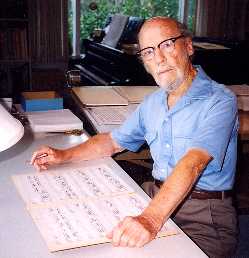

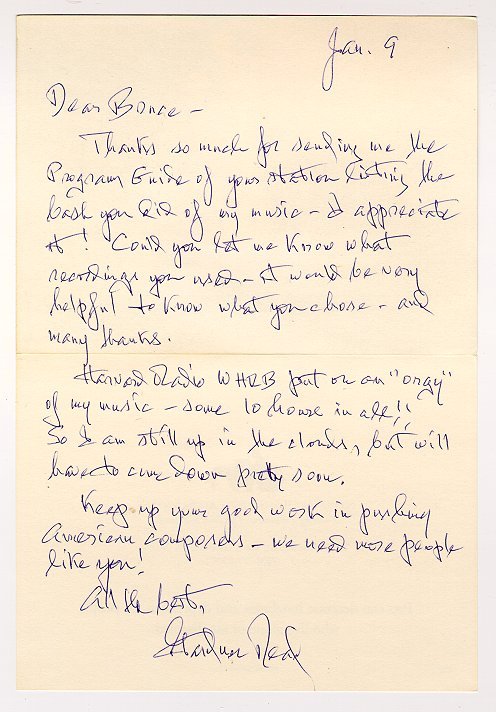 GR: Well, just five
years. I came back for the fiftieth anniversary of my graduating class
at Evanston High, in 1982. But I haven’t been back since then, and
even in those five years there has been a big change! New buildings
all over the place.
GR: Well, just five
years. I came back for the fiftieth anniversary of my graduating class
at Evanston High, in 1982. But I haven’t been back since then, and
even in those five years there has been a big change! New buildings
all over the place.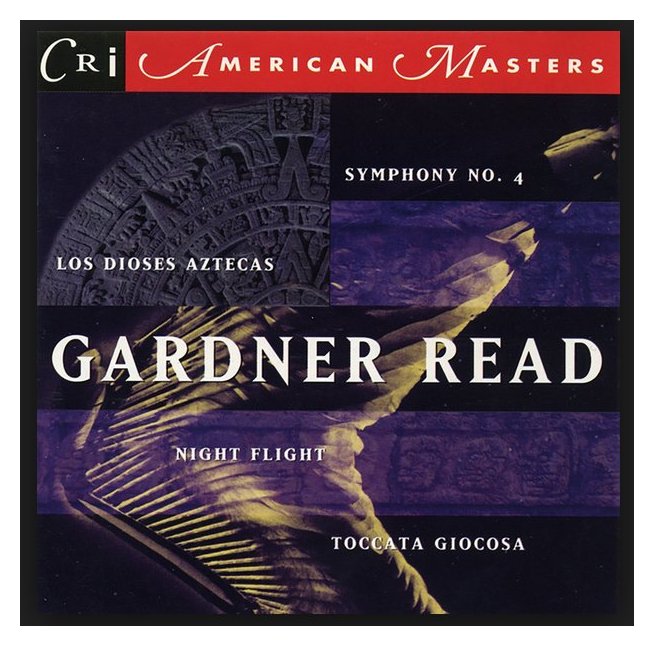 BD: You control the music, rather than the music
controlling you?
BD: You control the music, rather than the music
controlling you?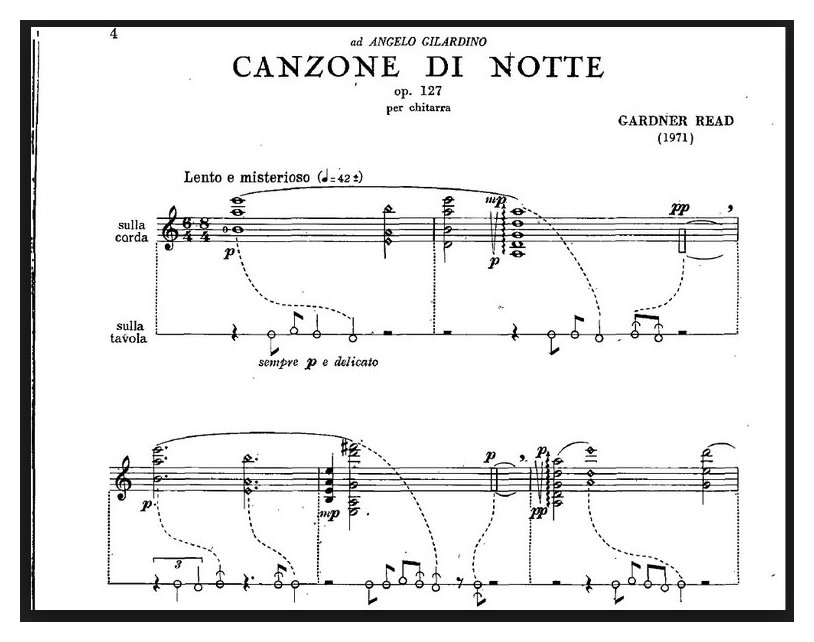 BD: Why did you want to write an opera
— what intrigued you about it?
BD: Why did you want to write an opera
— what intrigued you about it?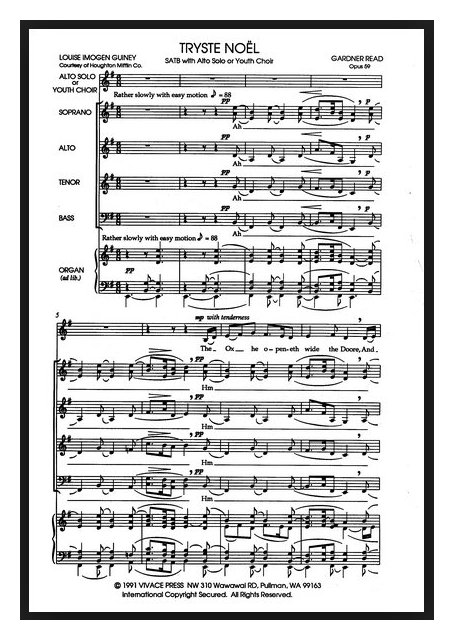 BD:
Tell me about the particular joys and sorrows of writing for the human
voice, either in this opera or in solo songs or a choral work.
BD:
Tell me about the particular joys and sorrows of writing for the human
voice, either in this opera or in solo songs or a choral work.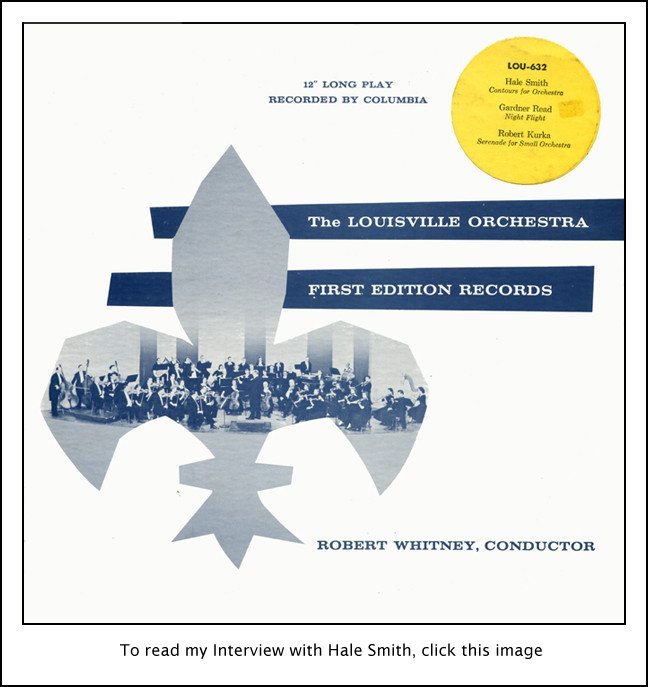 GR: I think it’s good. This is a pluralistic
society and it’s a pluralistic artistic environment. That’s what is
really very difficult for teaching young composers these days, because there
are so many ways, so many paths for them to follow. You can’t say,
“You go this way because it’s the only right way.” No. No longer
is there only one right way.
GR: I think it’s good. This is a pluralistic
society and it’s a pluralistic artistic environment. That’s what is
really very difficult for teaching young composers these days, because there
are so many ways, so many paths for them to follow. You can’t say,
“You go this way because it’s the only right way.” No. No longer
is there only one right way.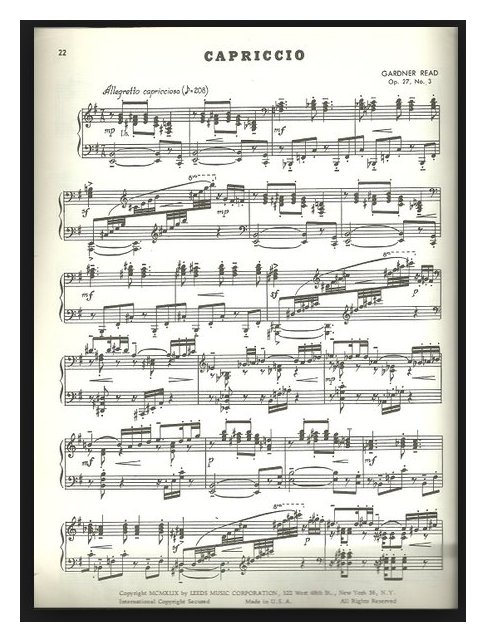 BD:
These are all the European composers. What American composers?
BD:
These are all the European composers. What American composers?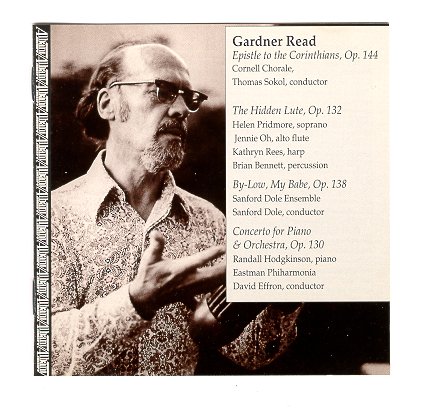 GR:
Basically, yes. There have been disappointments. There
have been some very poor performances where I wondered if I wrote that piece.
It’s not what I had in mind! And then other pieces, oh boy! I
can give you a very concrete example. Just four weeks ago I was at
Cornell University for the premiere of a piece called Epistle to the Corinthians, a work for
chorus, organ and brass choir. It was done in the Sage Chapel at Cornell
University. The conductor spent two full two-hour rehearsals on that
work plus run-throughs the morning of the performance, and he had it down
to perfection. The chorus sang beautifully, the brass players played
beautifully, the tempos were right, the spirit was right. Everything
was just focused perfectly! But I have to say that those kinds of performances
where everything falls into place don’t come along too frequently.
GR:
Basically, yes. There have been disappointments. There
have been some very poor performances where I wondered if I wrote that piece.
It’s not what I had in mind! And then other pieces, oh boy! I
can give you a very concrete example. Just four weeks ago I was at
Cornell University for the premiere of a piece called Epistle to the Corinthians, a work for
chorus, organ and brass choir. It was done in the Sage Chapel at Cornell
University. The conductor spent two full two-hour rehearsals on that
work plus run-throughs the morning of the performance, and he had it down
to perfection. The chorus sang beautifully, the brass players played
beautifully, the tempos were right, the spirit was right. Everything
was just focused perfectly! But I have to say that those kinds of performances
where everything falls into place don’t come along too frequently.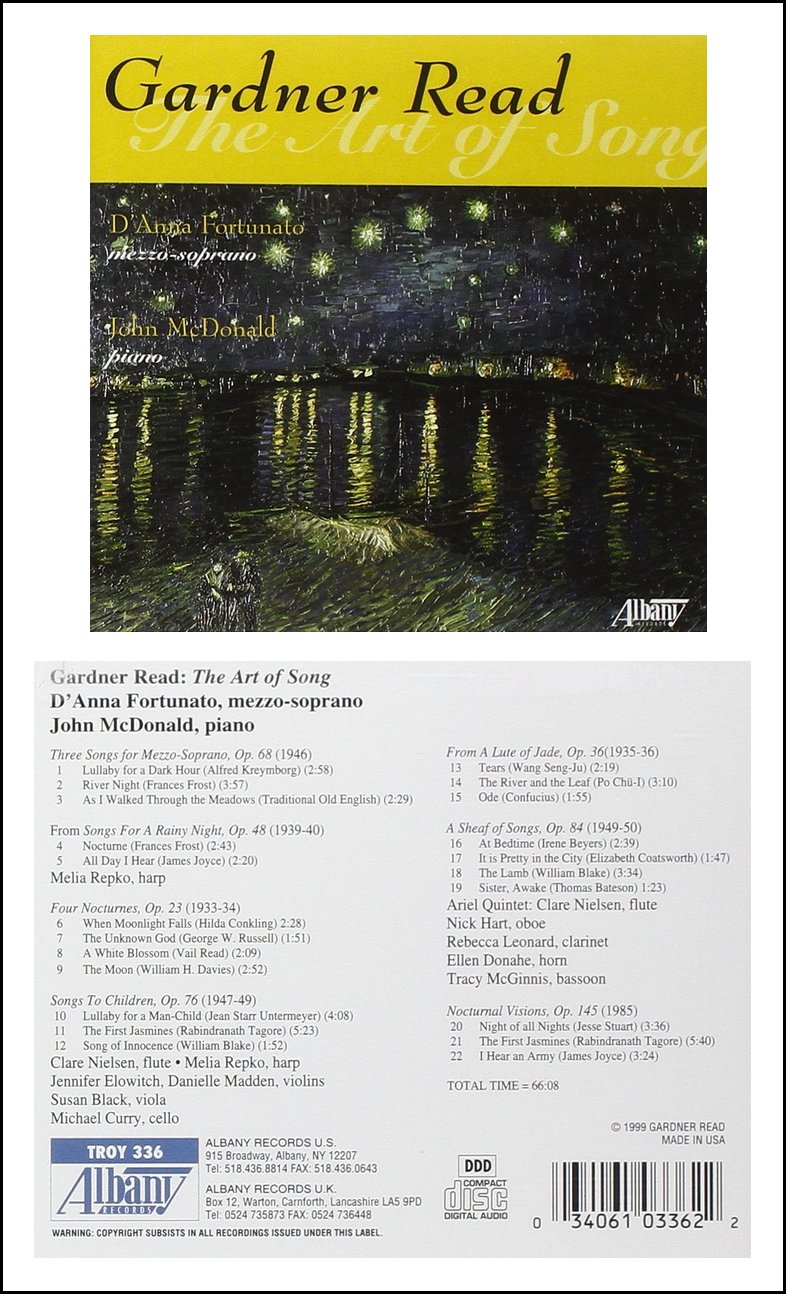 GR: Mostly because of copying with Xerox machines.
A choir director will buy one copy of a new choral piece and Xerox all the
copies for his chorus. So the publisher is losing the money and the
composer is losing his royalties. It’s getting to be that publishers
are putting out less and less because it’s financially so difficult.
GR: Mostly because of copying with Xerox machines.
A choir director will buy one copy of a new choral piece and Xerox all the
copies for his chorus. So the publisher is losing the money and the
composer is losing his royalties. It’s getting to be that publishers
are putting out less and less because it’s financially so difficult.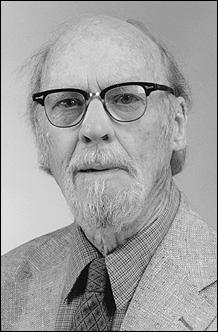 GR:
I suppose so. I don’t try to be overtly religious in the piece, but
naturally when you set something that has biblical text or religious background,
you approach it in a different way from a purely symphonic piece or a string
quartet. You feel you can’t be quite as dissonant, perhaps, or quite
as far out or as experimental.
GR:
I suppose so. I don’t try to be overtly religious in the piece, but
naturally when you set something that has biblical text or religious background,
you approach it in a different way from a purely symphonic piece or a string
quartet. You feel you can’t be quite as dissonant, perhaps, or quite
as far out or as experimental. 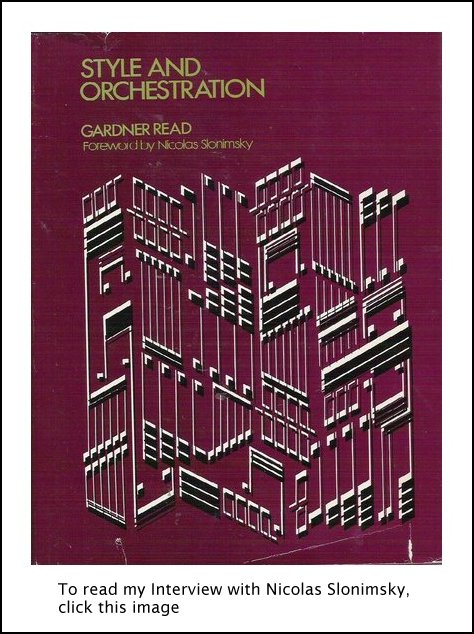 BD: Should our traditional system of notation
be scrapped?
BD: Should our traditional system of notation
be scrapped?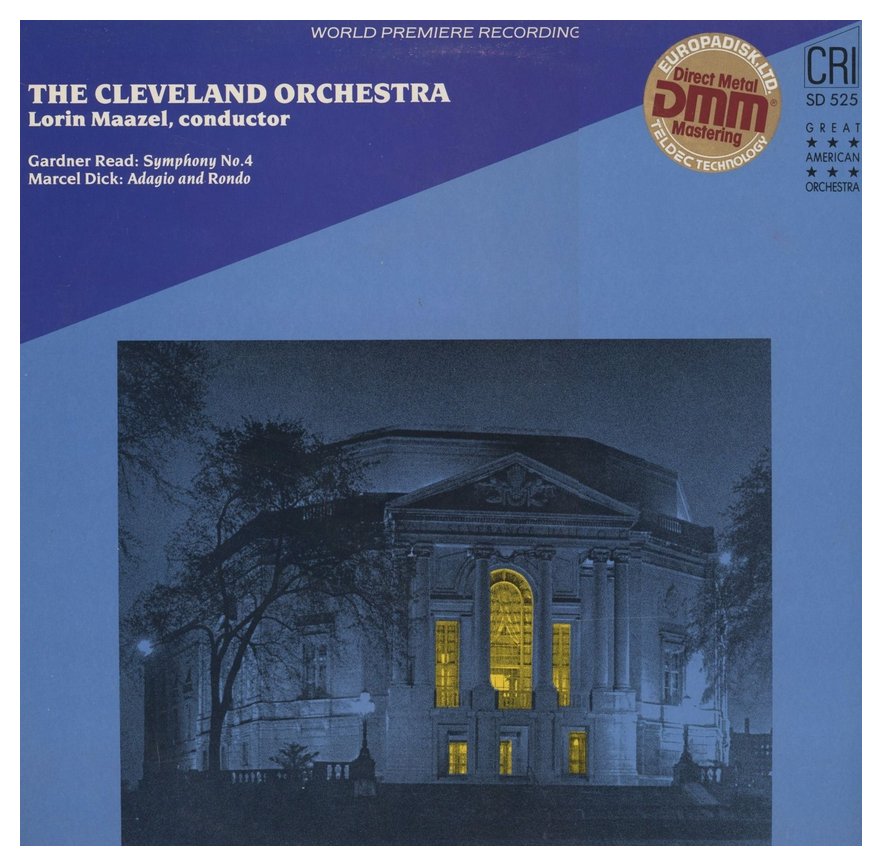
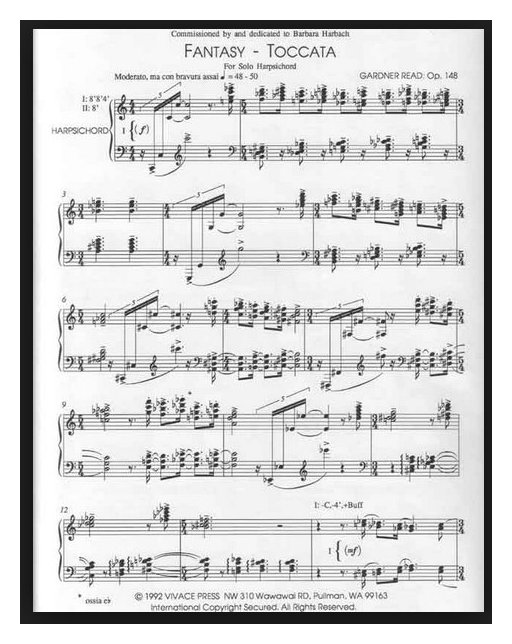 BD: Then obviously you respect him enough as a serious
conductor to regret his leaving the scene.
BD: Then obviously you respect him enough as a serious
conductor to regret his leaving the scene.
CFA’s Gardner Read dies at 92Prolific composer wrote nearly 200 works
Gardner Read, an influential composer and retired CFA faculty member, died in November at age 92. Photo by Fred Sway Gardner Read, 92, a College of Fine Arts professor emeritus of music who composed nearly 200 pieces in his 70-year career, died on November 10 from complications of pneumonia. Read taught in the school of music for 30 years, influencing many young musicians and helping them develop their own composition styles through his understated teaching methods. His colleagues describe him as a listener who truly cared about helping his students explore their own musical interests. “He always adjusted his ideas to be as helpful as possible and did not try to remake students into clones of himself,” says CFA Professor of Music Joel Sheveloff, winner of the 2004 Metcalf Cup and Prize for Excellence in Teaching. “That can’t be said for all the composition teachers in America. It was one of his most important characteristics; it informed almost everything he did.” Read was born in Evanston, Ill., and studied at Northwestern University and at the Eastman School of Music at the University of Rochester. A prolific and versatile composer, his works include an opera on the life of the poet Francois Villon and an oratorio based on Kahlil Gibran’s The Prophet. He also wrote numerous books on instrumental techniques and orchestration. Holly Mockovak, the director of the University’s music library, knew of Read’s work, but had not heard his compositions until a group of musicians performed his work at the Tsai Performance Center in 1998 in celebration of Read’s 85th birthday. “It’s something that rolls over you like the ocean,” she says. “If one were going to hear the music of Gardner Read, hearing it live on the first pass is certainly the way to go.” Mark Kroll, a harpsichordist and CFA professor emeritus of music, has performed Read’s Fantasy Toccata for Solo Harpsichord at venues all over Europe. “The harpsichord has a limited palate of colors, but he really got some great sounds out of the instrument,” Kroll says. “There are a lot of contemporary pieces that I’ve tried, but I don’t play very often because they’re very hard but not very interesting. This had all the elements. It makes the audience happy, and that’s really important.” Read is survived by his daughter, Cynthia, of Ossining, N.Y. BU Today,
December 7, 2005 |
Gardner ReadComposer of 'modern classicism'
The American lexicographer Nicolas Slonimsky, editing successive editions of Baker's Biographical Dictionary of Musicians, developed the reputation of being able to put his finger on a composer's outlook and output in just a sentence or two. And a summation such as this a man could be proud of: In American music, the name of Gardner Read is synonymous with the best traditions of modern classicism and inspired romanticism. His music possesses an aura of artistic dignity and the power of direct communication to the listener. Read himself expressed his aims pithily enough: I despise music that is gimmicky or jumps on a bandwagon. I like to solve puzzles or problems in pieces of music, always striving to make them expressive, lyric, melodic, and harmonically intriguing. He confessed that his wife, the pianist Vail Payne, was always after me to write easier music. But I don't set out to be difficult; it says what I want it to say, and sometimes just turns out difficult. John McDonald, a composer-pianist colleague at Tufts University who has recorded a CD of Read's piano music (as yet unreleased), feels that his work distilled many influences, especially from the early 20th century, but there is a very big romantic strain in his music, almost like Rachmaninov on steroids. There is also a streak of Americana, of Coplandesque harmony. Binding everything together is an extraordinary degree of integrity and of craftsmanship. Born in Evanston, Illinois, Gardner Read studied piano and organ while still a high-school student and visited Northwestern University in his home town for instruction in composition and counterpoint. In the summers of 1932 and 1933 he attended the National Music Camp at Interlochen, Michigan, studying composition and conducting. (He returned there as a tutor in 1940.) In 1932 Read's prospects moved several rungs higher when he won a four-year scholarship to the Eastman School of Music in Rochester, upstate New York; there he sat at the feet of Bernard Rogers and Howard Hanson. Six years later a Cromwell Traveling Scholarship brought him to Europe and studies with Ildebrando Pizzetti in Rome - and, briefly, with Sibelius in Finland before war descended on the continent. He added another illustrious name to his list of teachers in 1941 when a further scholarship allowed him to attend Aaron Copland's classes at the Berkshire Music Center in Tanglewood. Read's own career - as composer, teacher and conductor - now took off. Between 1941 and 1948 he was head of composition at the Institute of Music in St Louis, the Conservatory of Music in Kansas City and the Cleveland Institute of Music. Then, in 1948, he began what was to prove a 30-year association with the School of Music at Boston University when he was named composer-in-residence and professor of composition. He held a visiting professorship at the University of California, Los Angeles, in 1966; two years earlier Doane College, Nebraska, had awarded him an honorary doctorate in music. It was John Barbirolli who, during his ill-starred appointment at the New York Philharmonic-Symphony (as it was then called), conducted the premiere of Read's First Symphony in 1937 after it won first prize in their American Composers' Contest; his Second Symphony won first prize in the Paderewski Fund Competition six years later. Meantime Read was also making his mark with the baton, serving as principal conductor with the St Louis Philharmonic in 1943-44. Though his appearance on the podium thereafter took second place to his academic and creative careers he would occasionally guest-conduct when his own music was being performed and directed the Boston Symphony, Philadelphia and Kansas City Philharmonic Orchestras as well as a number of student ensembles. Twice, in 1957 and 1964, the US State Department funded lecturing and conducting tours in Mexico. Read's output as composer, which reached a total of over 150 works, embraces a variety of styles, his occasional embrace of modernist elements anchored in a relatively conservative tonal framework. His counterpoint could be tough and wiry, and he was fond of using not so much neoclassical textures as neo-Baroque forms - though not because they were fashionable: he was supremely indifferent to fashion, once referring dismissively to "the splash of the just-discovered genius". As well as four symphonies and a dance symphony entitled The Temptation of St Anthony, concertos for piano and for cello and a Fantasy for viola and orchestra, several large-scale choral pieces, a number of chamber works and several important scores for organ, there is also an opera, Villon, which has yet to be produced. Slonimsky, of course, characterised Read's music with an elegant swish: His musical resources range from simple triadic concepts to the most intricate edifices of sound and techniques; he succeeds in expressing his musical ideas in symphonic forms of impressive magnitude as well as in pictorial sketches of tonal landscapes limned in fine impressionistic colors. The mezzo soprano D'Anna Fortunato, who with John McDonald at the piano recorded a CD of Read's songs for Albany Records (it was released in 1999), reported that "I could always hear and feel the architecture of his music, but it always sounded spontaneous, never stiff or formal". For the violinist Janet Packer, who commissioned Read's Five Aphorisms for violin and piano in 1991, he was a consummate musician. The notation in his scores was precise and clear to the performer, yet unabashedly expressive. His expert knowledge of the orchestra, of the sound potential of each instrument, and the myriad tone colours resulting from combinations of instruments, was the result of years of listening and studying scores. He took pride in the craft of composing; his legacy of compositions and books reflect the value he placed on that craft. Working with him on the Five Aphorisms, Packer found, was "sheer joy. Ever respectful, sure of what he wanted but open to any means of achieving it, he was the ideal colorator." Read was an important writer on music, producing not only a regular stream of thoughtful articles and reviews but also, between 1953 and 1998, no fewer than 10 books on technical aspects of composition. He was assisted in his writing by the editorial and secretarial efforts of his wife; together, they lavished on his books the same fastidious attention to detail as they expended on their beloved garden. His written output earned him a further encomium from Slonimsky, who labeled him a scholar of remarkable originality, directing his intellectual curiosity towards unexplored regions in the science of music; his books dealing with orchestral devices and problems of modern musical notation are models of illuminating research. John McDonald found that Gardner Read in person
was like his music: "He was very conversational, very personable, very present,
and, when he was done saying what he had to say, he stopped." Martin Anderson The Independent, December 14, 2005 |
This interview was recorded at St. Mark’s Episcopal Church in Evanston,
Illinois, on June 4, 1987. Portions (along with recordings) were used
on WNIB the following year, and again in 1993 and 1998. It was also
used on both WNUR and Contemporary Classical Internet Radio in 2009.
This transcription was made and posted on this website in 2010.
To see a full list (with links) of interviews which have been transcribed and posted on this website, click here.
Award - winning broadcaster Bruce Duffie was with WNIB, Classical 97 in Chicago from 1975 until its final moment as a classical station in February of 2001. His interviews have also appeared in various magazines and journals since 1980, and he now continues his broadcast series on WNUR-FM, as well as on Contemporary Classical Internet Radio.
You are invited to visit his website for more information about his work, including selected transcripts of other interviews, plus a full list of his guests. He would also like to call your attention to the photos and information about his grandfather, who was a pioneer in the automotive field more than a century ago. You may also send him E-Mail with comments, questions and suggestions.